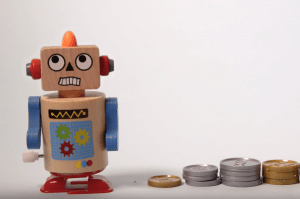Money Matters: Personal Finance
Money is a source of anxiety for many, especially students. Getting a handle on your personal finances now means you’ll move more confidently into managing your money as you transition from uni into work or business.
Getting started
With your personal finances, understanding where you are is the first step toward where you want to be. Here’s how.
Keep a Money Diary
For at least a week, write down everything you spend, what you spend it on, and when you spend it. You can do this in a spreadsheet, a journal, a document, on your phone – anywhere where you will actually keep track.
Hint: Your bank will log your transactions. If you mostly spend using EFTPOS or credit cards, you can export your transaction history via your bank account statements. Add in any cash transactions.
Look at your spending
Categorise your expenditure into groups that make sense to you. Suggestions are transport, rent, clothing, food, car expenses, entertainment. You can get more granular, especially with things that are “discretionary” that you have a lot of choice about: coffee, eating out, hobbies.
Build a budget
Your money diary will show you what you spent and earned over the course of one week. A budget helps you plan your future spending so that you can make changes to your spending habits and know confidently what money you have available to work with.
Try these tools, or use them to design your own:
Resources
Understand your relationship to money, and how you formed that relationship:
Your Money Story – how to rewrite it
Take a closer look at your money habits:
Understanding Money Habits
If you’re interested in something even more simple, try the Money Hub piece “Money in a Nutshell” which is targeted at educating teens on money matters.
Money in a crisis
At any time, an emergency or unexpected event can lead to a personal financial crisis too. Especially for creative people who often are self employed or rely on being able to physically be present in order to work in events and performances.
Having evidence of your budget will help in applications, so ensure you have at least a rough outline of your budget (above) before exploring the following options:
University Support
As a student at the University of Auckland, you may be eligible for Hardship Support if you need assistance with short term, unexpected costs that impacts your study. It’s worth checking the criteria and applying for support if you need it.
Government Support Options
In New Zealand, there are several options for personal financial support from the Government through Work and Income New Zealand (WINZ).
If you are out of work, including redundancy, you may qualify for job-seekers support. This page will help you work out what you might be entitled to receive.
For urgent, unexpected expenses there are grants available through WINZ, check your eligibility.
During COVID-19, there are extra measures being put in place to support individuals and businesses including self-employed people. Go here for details on support available during the COVID-19 crisis, and here for information for employers, including sole-traders.
Private Banking Support
Banks and lending companies may have hardship support programs to assist you if you are struggling to make repayments to them. Learn more about credit card hardship support, and then approach your own bank to ask what services they can offer you.
Help With Bills
Especially during the COVID-19 emergency, private companies are offering assistance such as waiving late payment fees, extending deadlines, giving payment plans and so on. It’s worth contacting your providers, such as for phone, internet and power to alert them if you may have trouble paying your bill and to ask what support they can offer.
Legal Assistance
If you believe you have been legally mistreated and need free legal support and advice, Community Law are available for this purpose.
Set some goals
Once you have a budget and understand your weekly cash flow, you can tweak your budget to allow you to save more or to put any extra cash toward paying off debt. You’re more likely to save if you have something you are working towards.
What do you want?
Your goal is something you are working toward so what do you want? Is it to fund some new equipment, or a class?
Build a vision board by collecting images or illustrating what you are working towards – this will serve as a visual reminder of your goal and the reason for your hard work (and any spending sacrifices!).
Here’s an example from mintegra on Instagram (click to see it on Instagram and read their caption!)
How will you get there?
You might have heard of SMART goals. SMART stands for Specific, Measurable, Achievable, Realistic, Time bound. It also helps when the goal is something that you really want!
You can use SMART goals to help you to work out how to do anything, like how to save money or to achieve what you laid out in your vision board. Here’s our guide to making great SMART goals that you can actually achieve.
What about debt?
Student Loan debt is common in New Zealand, so common that there is a culture of complacency around it. There are other types of debt that are easy to fall into once you’re over 18.
Why do we get into debt?
Debt is when you owe money to a person or organisation and includes credit cards, hire purchase, loans, mortgages, and payday loans.
In short, we get into debt when we borrow money. Our page on Understanding Debt has more information on what debt is and the terms relating to debt.
Is debt bad?
Not all debt is bad, but there is a culture of perceiving debt as bad. If our personal relationship with money is a tricky one it can seem even worse. The best thing to avoid getting into trouble with debt is to learn about it so you can use it as a tool. More about “Good vs. Bad Debt”.
How can I get out of debt?
Use your budget to find the areas where you can increase your income and reduce your spending to have more money aside to pay off your debt. It’s a good idea to pay off your debts as soon as you are able to because they cost – either in interest or in damage to your credit score (which makes it less likely you will be able to borrow in future!). Here’s more detail on how to pay off debt.
Resources
Learn all about what debt is, the terms relating to debt, and how to use it as a tool: Understanding Debt
Good vs Bad Debt – when is it a good idea to get into debt?

